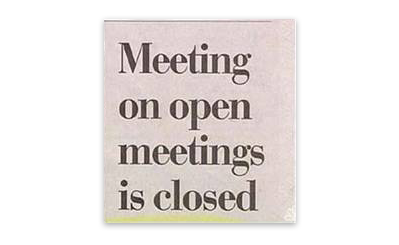|
Welcome to your GrammarBook.com e-newsletter.
|
“I have spent a lot of time taking the online quizzes and have been impressed with their thoroughness.”
—Kerri M.
“I use GrammarBook.com whenever I need assistance with difficult grammar or syntax questions.”
—Robin A.
“I cannot tell you how very much I enjoy reading The Blue Book of Grammar and Punctuation, which I consider to be the "grammar bible." Thanks for publishing a most useful grammar book and making my work as a legal secretary easier.”
—Mary M.
|
|
|
Are Two r’s One Too Many?
Here we are, in the month that’s hard to spell and harder to pronounce. Every year I grit my teeth listening to the bizarre ways people mangle
“February.” The culprit is that first r. Most people just ignore it and say “Feb-yoo-ary.”
The 2006 American Heritage dictionary has a “Usage Note” at “February” that made my brain squirm the first time I read it:
“the variant pronunciation [Feb-yoo-ary] … is quite common in educated speech and is generally considered acceptable. The loss of the first r in this pronunciation can be accounted for by the phonological process known as dissimilation, by which similar sounds in a word tend
to become less similar.”
Oh, I grumbled. Now I’m expected to believe that a blatant mispronunciation is not simply sloppy—no, don’t you see, it’s a phonological process, dear boy.
This is the kind of thing that gives scholarship a bad name. At least that was my initial reaction. Don’t get me wrong, I still believe “Feb-roo-ary” is the way to go, but there might be more to this dissimilation business than I originally recognized. Take a look at
other instances …
Library Just about every schoolchild who ever lived has said “lie-berry,” and some say it well into their teens. The similarity of this word to February can’t be overlooked.
Roller coaster I have heard sane adults say they went on the “rolly coaster.”
Kindergarten Come on, admit it, you or someone you know says “kin-dee-garten.” You’re as likely to hear it from parents as from kin-dee-gartners themselves.
Peripheral It’s quite common to hear things like, “When I was a young player, I learned to use my periph-ee-al vision.”
All four of the previous examples are words in which the r’s cause the difficulty. But other consonants can create similar problems …
Probably A lot of, uh, dissimilators pronounce it “prob-lee.”
Et cetera (etc.) Many smart, educated people botch, er, dissimilate the first t, and say “eck settera” rather than “et.”
I don’t know if the next two examples count as “textbook” dissimilation, but a curious thing happens with certain double-c
’s:
Succinct Everyone says “suh-sinkt.” When was the last time you heard someone correctly pronounce it “suk-sinkt”? Well, why else are there
two c’s? You don’t say “secede” when you mean succeed.
Flaccid Again, most people overlook one of those c’s. The widespread mispronunciation is “flassid”; the correct pronunciation is
“flaxid.”
But I’ve been saving the best for last. Can anyone explain the silent c in Connecticut? All I’ve been able to dig up
is that the state got its name from quinnitukqut, a Mohican word meaning “beside the long tidal river.” So where does the second c in Connecticut come from? Note that it’s quinnitukqut, not quinnictukqut.
Maybe, when nobody was looking, some prankster, perhaps one of the ringleaders of Dissimilation Theory, sneaked in that middle c, daring anyone to
pronounce it.
—Tom Stern
Because of the e-newsletter’s large readership, please submit your English usage questions through GrammarBook.com’s “Grammar Blog.” |
|
Free BONUS Quiz for You!
[[firstname]], because you are a subscriber to the newsletter, you get access to one of the Subscription Members-Only Quizzes. Click here to take a
Confusing Words and Homonyms Quiz and get your scores and explanations instantly!
More Good News for Quiz Subscribers
We are pleased to announce that we have added even more quizzes to help you challenge yourself, your students, and your staff. We added quizzes to existing categories and created some new categories such as “Confusing Verbs,” “Subjunctive Mood,” “Comprise,” and “Sit vs. Set vs. Sat.”
We reviewed and strengthened every quiz on our website to ensure consistency with our rules and guidelines contained in the eleventh edition of The Blue Book of Grammar and Punctuation.
If you think you have found an error in a quiz, please email us at help@grammarbook.com.

“So convenient … hundreds of quizzes in one click.”
[[firstname]], Subscribe to receive hundreds of English usage quizzes not found anywhere else!
- Take the quizzes online or download and copy them.
- Get scored instantly.
- Find explanations for every quiz answer.
- Reproduce the quizzes to your heart’s content.
- EASY to use.
- No software to download.
- No setup time.
- A real person to help you if you have any questions!
Instructors and Employers: we make your life easier!
- Assign quizzes to your students or employees.
- Students log in from anywhere.
- Scores are tallied and compiled for you.
- You decide whether to let students see their own scores and quiz explanations.
- Let GrammarBook.com take the hassle out of teaching English!
“Fun to test my skills!”
“The explanations really help … thanks!”
Your choice: Subscribe at the $29.95 or $99.95 level ($30 off - previously $129.95).
“I download the quizzes for my students who don’t have computer access.”
Subscribe today to receive hundreds of English usage quizzes not found anywhere else!
“Makes learning English FUN!”
 |
Don’t need all the quizzes at once?
You can now purchase the same quizzes individually for ONLY 99¢ each. Purchase yours here. |

Get Yours Today!
Get Amazon’s No. 1 Best-seller in Four Categories!
No. 1 in Grammar
No. 1 in Reading
No. 1 in Lesson Planning
No. 1 in Vocabulary |
The Blue Book of Grammar
and Punctuation
by Jane Straus, Lester Kaufman, and Tom Stern
The Authority on English Grammar!
Eleventh Edition Now Available
Have You Ordered Your Copy Yet?
An indispensable tool for busy professionals, teachers, students, homeschool families, editors, writers, and proofreaders.
Available in print AND as an e-Book! Over 2,000 copies are purchased every month!
Order Your Copy Today!
- Hundreds of Grammar, Punctuation, Capitalization, and Usage Rules
- Real-World Examples
- Spelling / Vocabulary / Confusing Words
- Quizzes with Answers
The publisher is extending its pre-publication discount offer until April 30, 2015! If you live in the United States or Canada, order the new edition of The Blue Book
through Wiley.com and get 30 percent off and FREE shipping. Simply go to bit.ly/1996hkA and use discount code E9X4AYY.
For those of you who live outside the U.S. and Canada, although the publisher is not able to offer free shipping, you will get 35 percent off to help offset your shipping costs. Simply go to bit.ly/1996hkA and use discount code E9X4A. |
Wordplay
If these newspaper headlines found circulating the Internet are authentic, they surely demonstrate an absence of thoughtful editing.


Learn all about who and whom, affect and effect, subjects and verbs, adjectives and adverbs, commas, semicolons, quotation marks, and much more by just sitting back and enjoying these easy-to-follow lessons. Tell your colleagues (and boss), children, teachers, and friends. Click here to watch. |







